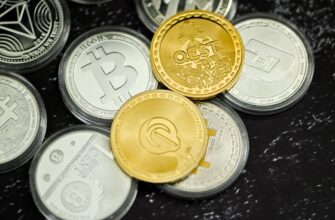What is Crypto BGN?
Crypto BGN refers to the ecosystem of buying, selling, and trading cryptocurrencies using the Bulgarian Lev (BGN) – the official currency of Bulgaria. As digital assets gain global traction, Bulgarian investors increasingly seek ways to convert BGN into Bitcoin, Ethereum, and altcoins through local exchanges, peer-to-peer platforms, and payment gateways. This guide explores practical methods, regulatory insights, and top platforms for seamless crypto transactions in Bulgaria.
How to Buy Cryptocurrency with BGN
Purchasing crypto with Bulgarian Lev involves three primary steps:
- Choose a Platform: Select a Bulgarian or international exchange supporting BGN deposits.
- Fund Your Account: Deposit BGN via bank transfer, card payment, or e-wallet.
- Trade or Withdraw: Exchange BGN for crypto or transfer assets to a private wallet.
Bulgarian-friendly platforms like Binance and eToro offer instant card purchases, while local banks such as DSK and UniCredit facilitate SEPA transfers for lower fees.
Top 5 Crypto Exchanges Accepting BGN
- Binance: Supports BGN deposits via credit/debit cards with 0.1% trading fees.
- eToro: Allows BGN deposits and offers copy-trading features for beginners.
- Coinbase: Accepts SEPA transfers in BGN with high liquidity for major coins.
- LocalBitcoins: Peer-to-peer marketplace for direct BGN/BTC transactions.
- CEX.IO: Enables BGN card purchases with user-friendly mobile apps.
Cryptocurrency Regulations in Bulgaria
Bulgaria treats cryptocurrencies as financial assets rather than legal tender. Key regulations include:
- Profits from crypto trading are subject to 10% capital gains tax.
- Exchanges must register with the National Revenue Agency (NRA) for anti-money laundering compliance.
- No specific licensing framework exists, but EU’s MiCA regulations will apply post-2024.
The Bulgarian National Bank monitors crypto developments but hasn’t issued central bank digital currency (CBDC) plans.
Securing Your Crypto Assets
Protect investments with these security essentials:
- Use hardware wallets (Ledger, Trezor) for long-term storage.
- Enable two-factor authentication (2FA) on all exchange accounts.
- Avoid sharing private keys or seed phrases digitally.
- Verify wallet addresses before transactions.
The Future of Crypto in Bulgaria
Bulgaria’s crypto adoption grows steadily, fueled by:
- Increasing merchant acceptance via BitPay and CoinGate.
- Blockchain startups emerging in Sofia’s tech hubs.
- Educational initiatives at universities like UNWE.
EU regulatory alignment may boost institutional involvement, positioning Bulgaria as a Balkan crypto gateway.
Frequently Asked Questions (FAQ)
Q: Is cryptocurrency legal in Bulgaria?
A: Yes, but it’s unregulated. Trading is legal with applicable taxes on profits.
Q: Which Bulgarian banks support crypto purchases?
A: DSK Bank, UniCredit Bulbank, and First Investment Bank allow SEPA transfers to exchanges.
Q: What’s the cheapest way to buy crypto with BGN?
A: Bank transfers via SEPA (0.1–0.5% fees) beat card purchases (2–4% fees).
Q: Can I mine cryptocurrency in Bulgaria?
A: Yes, but consider electricity costs (~€0.13/kWh) and hardware expenses.
Q: Are crypto-to-BGN transactions taxable?
A: Profits exceeding 5,000 BGN annually are taxed at 10% as capital gains.








